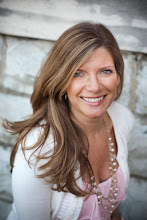Denial
My real life began August 4, 2004. Until then I thought I was living a life—writing papers, going to school, getting married, teaching students, grading papers; however, that life was missing my son and he was the catalyst for my paradigm shift.
Once John Malcolm “Jack” was born, my world revolved around the number of dirty and wet diapers, ounces of formula, hours of sleep, and minutes of crying. As Jack reached the stage of baby development where we began giving his age in months instead of hours or days or weeks, my husband, Joe, and I noticed a difference between Jack and other friends’ children. Jack didn’t like many things. He didn’t want to play with toys or even touch toys. He kept his fists in tight little balls and seemed angry at the world. Joe and I became experts at the range of silly faces and noises we could make to coerce our angry little boy to smile. His personality was unique—one of a wizened old man—a scientist or philosopher in the making we decided.
Comforted by our belief that Jack was just a thoughtful soul, I began teaching Jack to play. I would read the What to Expect During the First Year as if it were my teacher’s manual. If Jack’s objective was to display a pincher grasp, we would cram for that test until mastered. The same routine was applied to all milestones: waving, babbling, pointing. Then during the checkups, which I dreaded, I could answer, “Why yes, Jack has just started waving,” with complete honesty. I did not share that he had been taught through drill, practice, and reward to wave.
By the time Jack was 2, he was seeing three therapists a week: occupational, speech and physical. Joe and I thought for a time that Jack only had delays and would eventually catch up to his friends. The unspoken fear that seeped into our home during these years and hung like a fog was that Jack was autistic. Joe and I had both seen Rain Man and we were terrified of that stereotype for our son.
Jack’s savior and sister was born March 15, 2007. Within two weeks of Ingrid’s arrival, I realized that Jack’s differences were significant and needed a name and that we needed help.
To Tell or Not to Tell
It took 4 months and 2 experts to help us understand that Jack has autism. Unfortunately, they were not able to offer suggestions regarding therapists or next steps in the action process. I think this is the most difficult time. I know I felt absolutely alone. Joe and I were too emotionally raw to share Jack’s diagnosis with anyone else. I was afraid our friends and family would recoil, offer condolence, or display disgust. I knew no one who had a child with autism. I knew no therapists with any training regarding autism.
Six months later, I accidentally told one of Joe’s friends that Jack had been diagnosed with autism. His reaction changed my whole opinion of telling others. David explained that as a graduate student at Marshall College, he had worked with college students with autism. David had a wealth of information about the variances of how autism presents in different people and the various paths people with autism can take.
Within a week, I’d written a letter to all my friends and family members and explained that our Jack had autism. The support given during this time helped Joe and me immensely during our next challenging period: IEPs and home therapies.
The Only People Who Say “Fight!” Have Never Had a Special Needs Child
It is easy to say, “Start a home program. Do as much ABA (Applied Behavior Analysis) as possible. Fight for your child.”
One that has gone through these steps would never be so callous as to tell another parent to just do these things. ABA therapists are not in ready supply in Memphis. There isn’t a listing in the phone book for these therapists, so parents have to pass on names from one family to another. It is a time that is so frightening. You have accepted the diagnosis, you know what your child needs, and you cannot find it. And everyday that goes by is a lost day.
Close to the time Jack was diagnosed, a group of parents created an Autism Society of the Mid-South. We were lurking at every special needs meeting we could attend and heard about the newly formed group at one of these meetings. The ASotM-S gave me the knowledge and tools to actually “fight” for Jack. We met parents who would become friends, mentors, and the only ones who could laugh at the jokes only a parent of a child with autism would understand.
Acceptance but not Defeat
It has taken 2 years to find people to run Jack’s home program, speech therapists who feel comfortable working with a child who has severe autism, and a shadow for Jack whom I love dearly.
Now we are coming to terms with the fact that Jack may never speak on his own. That he may never live by himself. Sometimes those realizations are difficult when I begin to think of what he might be doing had he not been given the added struggle of autism. Would be play soccer or earn Cub Scout badges? Get invited to sleepovers and want to play board games with his Dad? Jack will probably not be that particular scientist or philosopher that we imagined he would become when he was a little baby.
However, he has already changed so many peoples’ lives. Jack has made me a better teacher and a calmer parent (particularly since our daughter has a bone condition and has surgeries in Baltimore twice a year). Joe is a better manager and looks at each event in life as an adventure. Jack has altered the life plan of ABA therapists who have worked with him. For instance, one is now a special education teacher instead of finishing up her last year in law school. Jack helps everyone around him question that big idea of ‘What is important’.
Jack is curious about light and shadow, water, textures, and sounds. He loves plants and music. And with that curiosity and love, our own little scientist blooms.
What I Wish for the Future
It is my hope that people will understand that children and adults with special needs are integral parts of our community. I want Jack and his friends with special needs to have a place in the larger framework of our society.



















